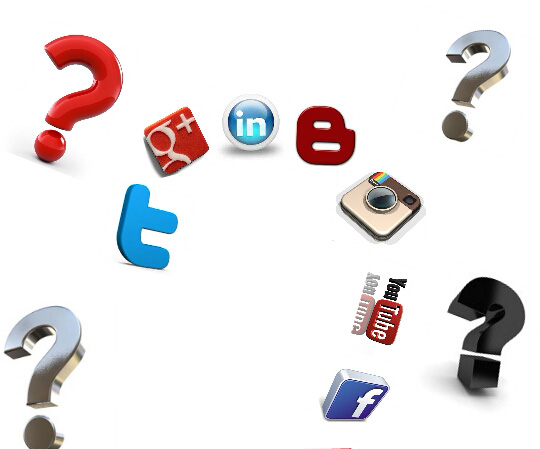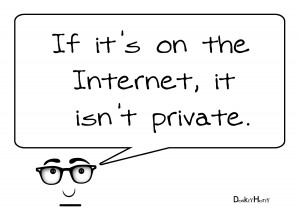What has happened to basic human decency?

GoogLiction/Creative Commons license
The use of social media as a platform for cyber-bullying has become a major concern.
There is no doubt that bullying plays a prevalent role in American society. A 2011 study by the National Center for Education Statistics and Bureau of Justice Statistics estimated that as many as 30 percent of students in the United States have been bullied in school.
With social media use on the rise, bullying behavior over the past decade has spilled over into the digital realm. Increasingly, discussion has centered on cyber-bullying, which is the use of electronic communication to bully a person, typically by sending or posting messages of an intimidating or threatening nature.
Incidents of cyber-bullying have flooded the news in recent months and many people are beginning to question social media in its entirety. Is it enjoyable or toxic? What prompts people to say such horrendous things online that they would never say in person?
Social media can bring out the worst in people: cowards verbally assault others in outlandish ways because they find comfort in their ability to hide behind the screen of an iPhone or laptop without having to confront people face-to-face.
Curt Schilling, the former star pitcher for the Boston Red Sox, is a perfect example of someone who was targeted by cyber-bullies after he posted a congratulatory post about his daughter on Twitter.
“Congrats to Gabby Schilling who will pitch for the Salve Regina Seahawks next year!!” Mr. Schilling wrote on Feb. 25 about his daughter’s college scholarship.
“Cyber leeches” crawled out of the woodwork to harass Mr. Schilling and his daughter in response, including threats of a physical and sexual nature.
Mr. Schilling did not tolerate such horrific commentary. He opted to stand up to the bullies, turning his rage into a productive call to arms concerning the harmful effects of bullying.

Former Red Sox pitcher Curt Schilling posted the identities of two cyber-bullies to force accountability for their words.
He took screenshots of some of the most vulgar messages and posted them on his own social media account. Two men, Sean MacDonald and Adam Nagel, were called out in this way.
Mr. Schilling was not simply fighting fire with fire by calling out these two Twitter users. He was fighting fire with justice—proving to social media users that there are consequences for their actions.
Mr. MacDonald graduated from Montclair State University and was working as a ticket-seller for the Yankees, but was terminated as a result of his comments. Mr. Nagel, who attended Brookdale Community College in New Jersey, has been suspended until further notice.
It’s difficult to understand. These men threatened to rape and harass Mr. Schilling’s daughter simply because they did not agree with some of Mr. Schilling’s business choices, political philosophy, or previous public comments.
But the issue here is not disagreeing with Mr. Schilling or even thinking that he is a bloviating self-promoter. What America fails to understand is that Mr. Schilling’s controversial actions or words do not serve as an invitation for such harassment.
This Twitter fiasco should be a wake-up call. Not the type of wake-up call that floods the news for 20 minutes and fades out of peoples’ minds, but instead the type of attention-grabbing news that promotes change and awareness, particularly in terms of cyber-bullying.
Social media can be wonderful—but only when it’s used properly. Connecting with old friends via Facebook or showing off impressive photography skills on Instagram are just two of the enjoyable benefits. It’s when people are oblivious to social media’s dangers and the effect that their words can have on other people that problems arise.
So the question surfaces yet again: Why do people feel as if they can act this way over social media but not in person?
Americans live in a tech-based world. We immerse ourselves in video games, respond to flashing traffic signals, and rush at the sound of an alarm clock. Technology is consuming our world, one bite at a time.

Some bullies think they can hide behind “anonymous” comments, but this is a misguided notion.
Since technology has become such an integral part of our lives, people turn to it for stress relief and guidance—with some believing that it is a safe outlet for expressing unfiltered hatred towards other social media users through a digital pseudonym.
Some cyber-bullies post offensive things as a way to make themselves feel better. Others are unaware of the impact their words can actually have because typing a thought and hitting “enter” feels different than yelling in someone’s face.
In Mr. Schilling’s situation, the bullies probably thought that they were safe because Mr. Schilling is a celebrity with thousands of Twitter followers. He might not even see them, let alone act on them. They could say what they wanted.
It shouldn’t matter whether they thought Mr. Schilling would or would not see them. What has happened to basic human decency?
Mr. Schilling was right to call them out the way he did.
The abstract nature of social media makes people feel as if there aren’t consequences for their actions. They feel invincible; it doesn’t matter what they say.
Mr. Schilling has proved that this is not true. We are all accountable for what we say and for how we treat people. He is an excellent example of someone who stood up for his rights and the rights of his daughter.
Whatever you may think of Mr. Schilling as an athlete, businessman, or political pundit, he should be applauded for fighting back against such hostility.
Such acts remind us that social media are not platforms for anonymous bullying and hate speech. We all need to remember that if we’re not willing to say something to somebody face-to-face, we probably shouldn’t be saying it at all.

Alli Caulfield is a co-editor of The AMSA Voice. She is a senior and a resident of Leominster. She hopes to attend college in a big city to pursue her...


